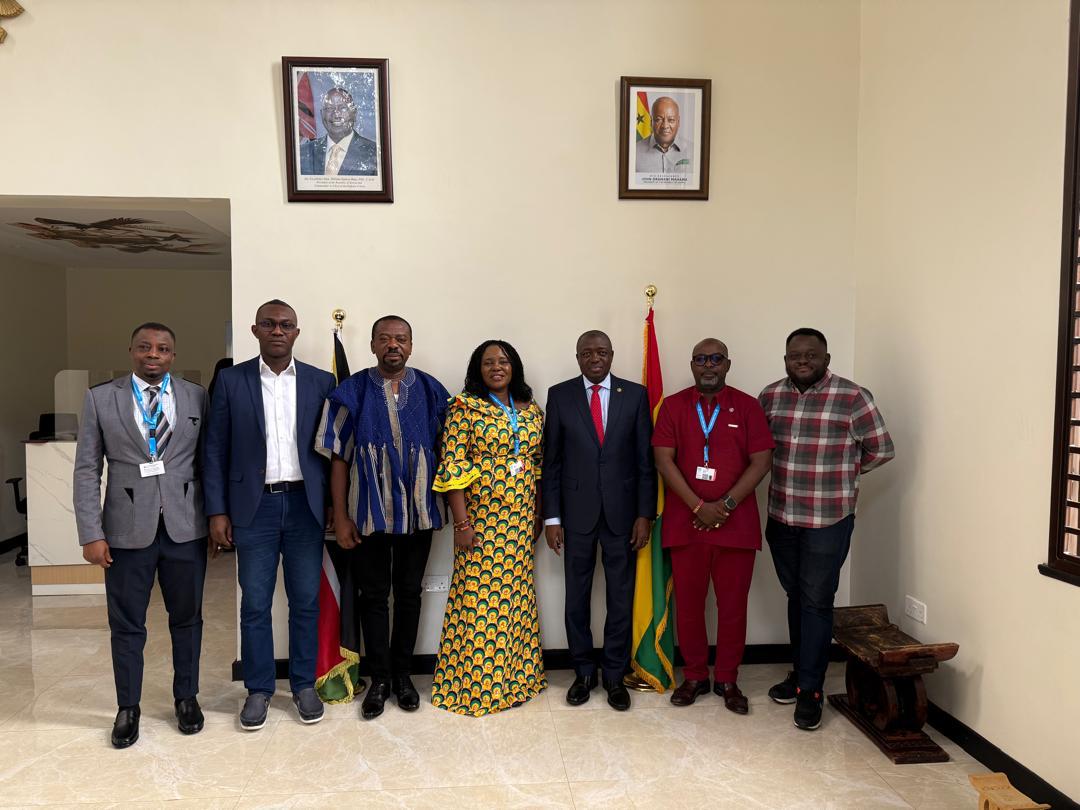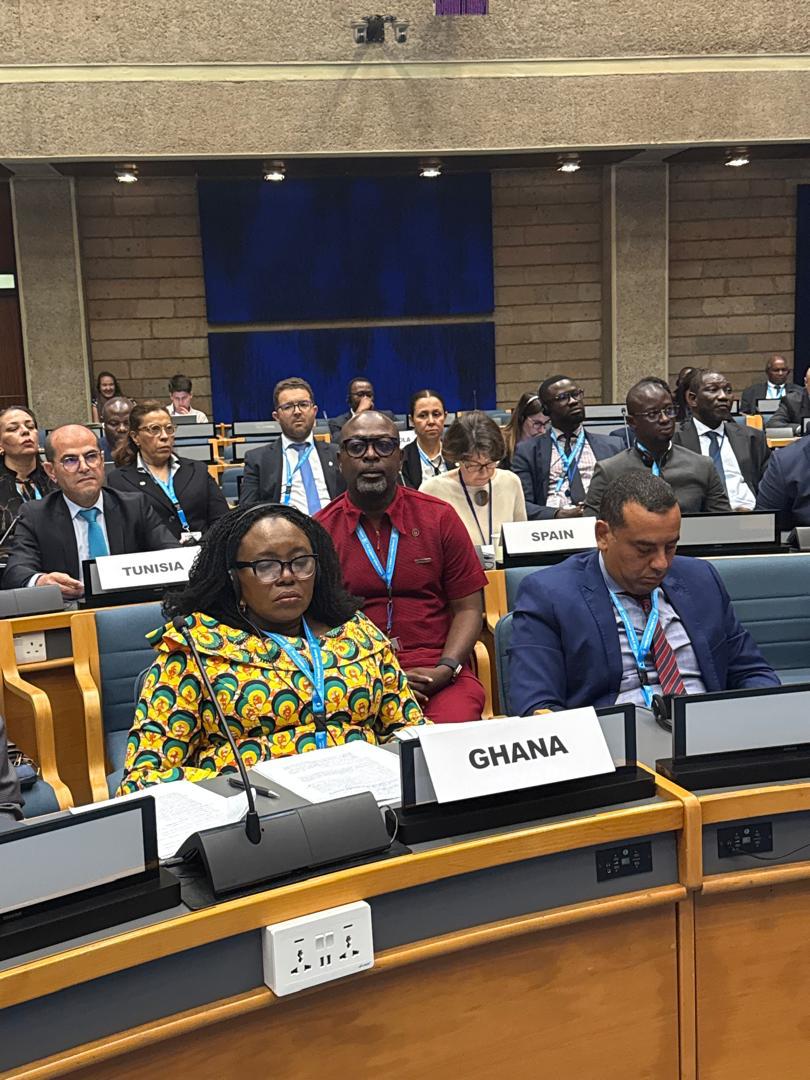Ghana’s Deputy Minister for Local Government, Chieftaincy and Religious Affairs, Hon. Rita Naa Odoley Sowah (MP), articulated Ghana’s position on SDG localisation"at a high-level side event on Multi-Level Governance for SDG Localisation held on Wednesday, 28th May 2025, as part of the resumed second session of the United Nations Habitat Assembly in Nairobi.
Representing Ghana, Hon. Sowah delivered a compelling address that highlighted the country's structured and inclusive approach to localising the Sustainable Development Goals (SDGs). Her presentation showcased Ghana’s strategic integration of SDG targets into national and local planning systems, while reinforcing the government’s commitment to driving impactful urban and local development through innovation, data, and partnerships.
She explained that Ghana’s governance architecture for SDG implementation is anchored on strong coordination between national and sub-national institutions. At the national level, Hon. Sowah emphasized the leadership role of the National Development Planning Commission (NDPC) in setting development frameworks and issuing planning guidelines aligned with the SDGs. She also underscored the contributions of the Ministry of Local Government, Chieftaincy and Religious Affairs, working with the Ministry of Finance, in ensuring that local planning and budget processes reflect global and national priorities.
The Deputy Minister spotlighted the work of Ghana’s SDGs Advisory Unit at the Presidency and its vital role in aligning government efforts with the global 2030 Agenda. She also noted that Ghana’s national policies, including the National Urban Policy and the National Slum Upgrading and Prevention Strategy, embody the principles of alignment, adaptation, and adoption of the SDGs, in line with the UN-Habitat’s Partnership Platform for Localizing the SDGs.
Drawing from her Ministry’s experience, Hon. Sowah highlighted the Ghana Smart SDG Cities Programme as a flagship initiative currently being implemented across ten Assemblies, with support from UN-Habitat. She stressed that the initiative is advancing integrated urban planning, data-driven governance, and community-centred development solutions in rapidly growing cities.
In reflecting on progress at the local level, she commended the pioneering efforts of the Accra Metropolitan, Ga West Municipal, and Sekondi-Takoradi Metropolitan Assemblies in producing Voluntary Local Reviews (VLRs), which demonstrate Ghana’s commitment to transparency and results in SDG delivery.
Monitoring and evaluation, she explained, remains a cornerstone of Ghana’s approach, with NDPC templates adopted across all levels of government to track contributions to the SDGs. She also affirmed the role of Regional Coordinating Councils in supervising and evaluating Local Authorities under Ghana’s decentralised system.
To sustain progress, Hon. Sowah pointed to the importance of institutional support systems such as the Inter-Ministerial Coordinating Committee on Decentralisation, the Institute of Local Government Studies, and the Office of the Head of Local Government Service, all of which play critical roles in policy guidance and capacity-building.
In her concluding remarks, the Deputy Minister expressed Ghana’s readiness to work closely with UN-Habitat and other development partners in implementing the New Urban Agenda, adopting the forthcoming UN-Habitat Strategic Plan (2026–2029), and promoting people-centred smart city development.
She cited the Participatory Slum Upgrading Programme (PSUP) in Ga Mashie as a practical example of how collaborative and community-based initiatives can transform the lives of urban dwellers.
“Ghana is not only localising the SDGs; we are living them. Through strong governance, empowered communities, and global partnerships, we are committed to building sustainable, inclusive cities that leave no one behind,” Hon. Sowah stated.


